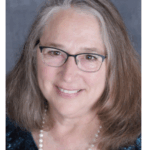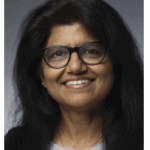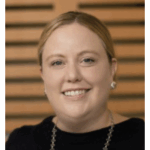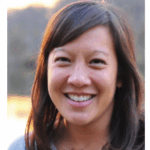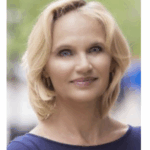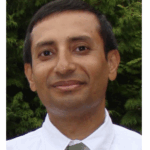2021 ASA Board of Directors Candidates
The ASA announces the candidates for the 2020 election. The winning candidates’ terms will begin in 2021. Voting begins at 12:01 ET March 30 and ends at 11:59 p.m. PT on May 1.
Quick Links
Navigate to each race via the following links:
Running for President-Elect
Running for Vice President
Running for Council of Sections Representative to the Board
Running for Council of Chapters Representative to the Board
Running for Publication Representative to the Board
List of Candidates
Running for President-Elect 2021
Kathy Ensor
Noah G. Harding Professor of Statistics and Director of the Center for Computational Finance and Economic Systems, Rice University
Director, Kinder Urban Data Platform for the Greater Houston Area
It is an exhilarating time to be a statistician, and I am honored to be a candidate for president of the ASA. As we move into an era where data are the new gold, our profession’s skills, talents, intellect, and energy become increasingly important. We are now able to capitalize fully on our strong foundations in the age of ubiquitous data and extensive computational resources. We live and breathe this excitement in our daily lives, passing this enthusiasm along to the next generation of statisticians and data scientists.
Areas for the ASA’s immediate attention are leadership, advancing the ASA’s data science footprint, and engaging in the new frontier of urban analytics.
Leadership: Members of our profession hold strategic leadership positions across industry, government, and academia. Training in statistics naturally develops a foundation for leadership in large part due to the interdisciplinarity of our profession. In 2018, the ASA founded the Leadership Institute, and it needs to be enhanced—not forgotten.
Data Science: Our field has seen an explosion of new methods in statistics and data science, integrating the best of statistical thinking and practice. Forward-looking universities rely heavily on, and invest in, their statistics departments to build top data science programs. The ASA has an opportunity to work with university leaders and government agencies to articulate the value statisticians bring to the data science leadership table.
Urban Analytics and Data Privacy: Urban analytics requires new statistical paradigms and a willingness to engage local, state, and federal governments; NGOs; and communities. Central to this focus are growing issues of data privacy and the changing landscape of availability and use of data. The ASA must take a leadership role to understand the changes and expertly address their impact. This area opens an opportunity for the ASA to foster greater involvement of local chapters with their communities.
See ensor.rice.edu!
Daniel Jeske
Professor of Statistics and Vice Provost of Administrative Resolution, University of California, Riverside
As a candidate for president of the ASA, my vision focuses on initiatives that will help our members with their careers. When we help our members achieve, we help our discipline prosper and we help the ASA flourish.
I know that many of you want to be meaningfully involved with the ASA. Our involvement with the ASA gives us a platform to make an impact. If I am elected, I will make it easy for you to participate in one or more initiatives and, together, we will have an impact. We have heard that TEAM stands for “Together Everyone Achieves More.” Let’s Do This Together!
My term on the ASA Board of Directors (2014–2016) provided me the opportunity to lobby for the ASA to fund chapters. That effort resulted in the current program where chapters are annually reimbursed for up to $1,000 for pre-approved expenses. My current ideas for initiatives fall into three areas: Community and Opportunity, Career Development, and Conferences and Technology. On my campaign website, I discuss specific ideas for impacting these areas. Please take a look at those ideas, which address data literacy, teaching materials, ASA representation, ASA-sponsored research, ASA journals, career skills, and use of technology.
For the past 17 years, my career has been at the University of California, Riverside, where I have served as professor, department chair, and now as a vice provost. Prior to that, I worked at AT&T Bell Laboratories while serving as an evening lecturer at Rutgers University. Along the way, I have done some statistical consulting. Please visit my website to learn more about my background.
In closing, I pledge to bring optimism, efficiency, and an “all in” approach to my work as the ASA president. It will be a great responsibility, but also a great honor to serve you in “Promoting the Practice and Profession of Statistics.” My vision is purposefully ambitious, and the ace up my sleeve is YOU! Let’s Do This Together!
Running for Vice President 2021–2023
Amarjot Kaur
Executive Director and Head Respiratory and Immunology (Statistics), Merck Research Laboratories
The ASA community has been an integral part of my statistical journey and has given me great opportunities to grow and enrich my professional experience. I feel honored to be a candidate for ASA vice president.
Collaborate to meet current challenges: We are witnessing great technological advances, where we are tasked to make sense out of big data for making sound decisions and predictions. Strengthening our collaborations across disciplines in integrating statistical thinking with mathematics, computer science, and other sciences will yield richer results. I have spent [a] major part of my career collaborating across diverse functional groups in making a positive impact for human health. We make progress when we get out of our comfort zone and learn something about areas of collaboration, to not only answer questions but also help frame them.
Communicate effectively to make impact: We can make impact only when our stakeholders understand our statistical viewpoint. Our collaborators will buy into statistical thinking only when they get it. I have directly worked with nonstatisticians and understand the importance of effective communication in furthering medical research. We must continue to improve our ability to explain statistical concepts in the simplest manner to those not familiar with statistical terminology. This is particularly important when working across multiple disciplines to solve big data problems collectively.
Diversity is our strength: Diversity is important for broadening our ideas and is personal to me. The diverse groups in the ASA membership will continue to benefit with our steadfast commitment in nurturing their interest.
Engaging younger generation and mentoring: Statistics touches everyone in some shape or form but still many are not familiar with statistics as a profession. Engaging and mentoring [the] younger generation can help them see statistics as a versatile and rewarding career.
If elected, it would be my honor to serve you.
Matilde Sanchez-Kam
Associate Director of Analytics and Informatics, Office of Biostatistics, Center for Drug Evaluation and Research, US Food and Drug Administration
It is a great honor to be nominated for vice president of the American Statistical Association. I initially became a member of the ASA as a Penn State graduate student in 1993. My active service to the ASA has spanned over 20 years. My active involvement began in 1998 and progressed into leadership roles in the New Jersey Chapter, Statistical Consulting Section, and Biopharmaceutical Section.
If elected, I would like to focus on moving forward the following initiatives:
-
- a) Attract new members to join the ASA
-
- b) Collaborate with other external statistical organizations and within the ASA among sections
- c) Help ASA members to stay relevant professionally
With the start of the new decade, the 2020s, the field of statistics is undergoing a major revolution. The ASA should look at ways to make the association more attractive to the new generation of statisticians and data scientists.
At present, I serve as co-chair of the Outreach and Collaboration Committee (OCC) within the ASA Biopharmaceutical Section. The goal of the OCC is to engage with other statistics professional societies with synergistic objectives and interest, as well as with other ASA sections. I think it would be worthwhile to encourage increased collaboration and knowledge-sharing among the different ASA sections, committees, and chapters. Each section would be encouraged to appoint a liaison to the ASA who will be responsible for exploring activities of ASA committees to bring relevant ASA initiatives to each section’s membership. Active section participation in the ASA’s student-focused initiatives will showcase statistics as a profession which would in turn help with the recruitment of new ASA members.
I would also like to explore ways to help statisticians to stay relevant in the workforce. No matter where you are in your career, staying relevant professionally will be a big part of your success. I will support providing opportunities to our membership to keep their skills current and in-demand in order to stay competitive in the job market.
Running for Council of Sections Representative to the Board
of Directors 2021-2023
Kate Calder
Professor and Department Chair, Department of Statistics and Data Sciences, The University of Texas at Austin
I am honored to be nominated for the position of Council of Sections Governing Board representative to the ASA Board of Directors. Through my experience in leadership roles in various ASA sections, I have observed and worked to influence the many ways the ASA contributes to the betterment of statistical education, practice, and science. The association brings together professional statisticians and students from across the world and provides a voice to advocate collectively on matters of fundamental importance to scientific discovery and public policy.
In recent years, the ASA has impactfully advocated for the proper use of p-values and for increased rigor in animal research, as well as lobbied Congress on issues ranging from climate change to forensic science. Beyond its important advocacy work, the ASA supports its membership by providing professional development and mentoring opportunities. I am personally grateful for the positive impact the association has had on my career, and I would welcome the chance [to] serve in a more significant capacity.
The ASA has maintained its relevancy for nearly two centuries by embracing opportunities for growth that presented with the changing times. Looking to the future, it is imperative for the ASA to continue its tradition of adaptability. It should actively welcome and support the career development of those who may not primarily self-identify as statisticians, but who provide valuable perspective and who can enhance and amplify our collective voice. In particular, the ASA needs to explore creative ways to attract data scientists, many of whom are newly entering the workforce without graduate study or have graduate-level training in fields other than statistics. By enhancing its diversity and breadth in this way, as well as in terms of the demographics of our membership—a core theme of the ASA’s Strategic Plan—the association will be well-poised to continue its impactful work in the decades to come.
Natalie Rotelli
Manager, Design Hub Analytics,
Eli Lilly and Company
People often ask me what the ASA has to offer. Oh, where do I begin?
The ASA provided me with a community that shares both my passions: advocating statistics and people. Membership allowed me access to a like-minded tribe eager to find solutions to important issues. Conversely, these interactions have afforded me insight from those with backgrounds wholly unlike mine, enriching my perspective. As a computational statistician in Eli Lilly’s Advanced Analytics group tackling innovative clinical designs and now leading a team of data scientists, my ASA involvement has allowed me to stay abreast of the ever-evolving technological advances and focus on appropriate applications of statistics.
The ASA has been generous with me. How have I returned the favor? My first home within the ASA was the Section for Statistical Programmers and Analysts (SSPA). I started by volunteering in any way I could and later led sessions/panels/roundtables. As I progressed from Council of Section (COS) representative of the SSPA to vice chair and chair of the COS Governing Board (COSGB), my impact grew. I was featured in a ThisIsStatistics video advocating for the field, actively supported initiatives to grow section and interest group health, and led impact and leadership workshops for the COS. I have shown flexibility in both advancing with the times and staying grounded with our central objectives.
How will I contribute to this role? I am thrilled about this chance to impact the ASA in a different way. As the COSGB representative to the BOD, I would be able to meld my deep understanding of COS with the initiatives of the board. I would leverage my fresh perspective as a minority woman plus experience on D&I initiatives to enhance diversity and breadth of the ASA. I am eager to share fresh idea[s] for the K–12 objective gleaned from volunteering in countless job fairs representing stats.
Thank you. I am deeply honored to be considered for this role. Together, we can expand the influence of the ASA. I am so excited!
Running for Council of Chapters Representative (Region 1) to the Board
of Directors 2021-2023
Alexandra Hanlon
Professor of Practice, Department of Statistics, and Director, Center for Biostatistics and Health Data Science, Virginia Tech
Co-Director, CTSA iTHRIV Biostatistics, Epidemiology, and Research Design, Methods Core
It is an honor and a privilege to be nominated as a Council of Chapters Representative to the Governing Board (“board”) of the American Statistical Association. If elected, I will work enthusiastically with the board to achieve the ASA’s mission of promoting the practice and profession of statistics. In accordance with our strategic plan, we will continue to work toward enhancing the diversity and breadth of the ASA and increasing the visibility of and ensuring the future of the profession of statistics.
To promote data-driven decision-making and policies, I will work with the board as a collaborative statistician with experience and commitment to team science and placing practicing statisticians at the decision-making table. I will continue to advocate for cohesive partnerships among methodologists, collaborating statisticians, data scientists, and content experts. I also look forward to promoting the practice of statistics through bringing visibility to career opportunities through the AP Statistics classrooms across the country. I will advocate statistical literacy through curricular initiatives. These initiatives will help us realize our vision of greater awareness of the value of data and statistical methodology to drive discovery and inform decisions.
I am deeply grateful to the ASA for what it has done for me personally and professionally. Over the years, my engagement with the ASA at both the chapter and national levels has kept me active and informed, broadened my perspective, kept me energized and refreshed, expanded my network of colleagues and friends, provided me with continued educational opportunities, offered me mentorship opportunities, sharpened my communication and leadership skills, and taught me the value of service and community engagement. I will always be a cheerleader for our association. I look forward to continuing my service with the ASA, regardless of the outcome of this election.
Michael Larsen
Professor and Chair, Mathematics and Statistics, Saint Michael’s College
ASA members and others have significant contact with the ASA through its chapters. Chapters provide opportunities for continuing education, outreach, support of K–12 education, mentoring, and social activities. On the Council of Chapters Governing Board (COCGB), I will listen to individuals from many chapters; disseminate best practices and creative ideas; and work to ensure operation of chapters consistent with ASA policies, strategic plans, and presidential initiatives.
Since graduate school, I have been a member of local chapters, currently the Boston Chapter. Through my diverse experience, I have some perspective on challenges and opportunities for the ASA. Having progressed from lecturer to full professor, from research university to liberal arts college, and from small town to big city to a place in-between, I have interacted with the ASA and the statistics profession in many ways. My interests have evolved as I have worked in survey sampling, in clinical trials, as a consultant, and in education. The ASA represents a large, diverse community and needs to provide opportunities and leadership for all members. No one approach will be sufficient to encourage new and retain existing members. Efforts toward public awareness, public policy impact, and companion communities—including data science—need to be creative, well executed, and inclusive.
In 2016–17, I served as president of the Washington Statistical Society. In the Survey Research Methods Section, I held elected positions, including chair. I am an elected fellow and served on the Fellows Committee. I have had a long association with CHANCE magazine and have served on editorial boards of ASA and IMS journals. I have been a member of National Academy of Sciences review panels, a member of the National Institutes of Health Biostatistical Methods and Research Design study section, and organized many sessions for the Joint Statistical Meetings.
I look forward to serving the members of the ASA on the COCGB and the board of directors.
Running for Publications Representative to the Board of Directors 2021–2023
Ranjan Maitra
Department of Statistics, Iowa State University
The information age has been characterized by the ubiquity of cheap digital storage, multi-core miniaturized computational architectures, and efficient digital networking. This data-rich environment provides both opportunities and challenges for the statistician, with every discipline feeling the need to engage and others the desire to appropriate. Our focus then needs to be on strategies that address these challenges without compromising on our discipline’s reputation for quality. This is the primary task that I see for myself as the publications representative.
Despite recent improvements, our discipline is afflicted by inordinate review times that put us at a disadvantage, especially when the competition is against sometimes loosely refereed but timely conference proceedings. We can take a few actions. An initial model that I was instrumental in getting started is the Rapid Research Article category of Statistical Analysis and Data Mining that guarantees all authors a timely (30-day) peer-reviewed accept/reject decision if their papers conform to set page limits. Another possibility is to consider, if the authors so desire, transferring reviews of a rejected manuscript from one ASA journal to another as long as authors have addressed shortcomings. Further, while the ASA has done commendable work in reproducibility of results and accessibility of data, we need to make sure that this process is consistent with large data also stored in persistent repositories.
Our profession and editorial boards should be representative of the membership. For instance, we could design a policy that democratizes editorial board appointments by distributing the responsibilities among more stakeholders than overburdening a few. Several modern areas of our discipline (e.g., imaging) may benefit from publication outlets. We also need to look into encouraging more free open-access journals. These are some of my thoughts as I seek to serve our profession through a position on the board.
Bin Nan
Professor and Director of the Master Program of Data Science, Department of Statistics, University of California, Irvine
Adjunct Professor, Department of Biostatistics, University of Michigan
It is a great honor to be nominated. I would be excited to serve on the ASA Board as publications representative. We are in a unique, fast-changing era that our profession is facing emerging opportunities and new challenges, as well. With the successes of deep learning in many application areas, there is a great need of statistical understanding of the effective algorithms.
There has been extensive discussion on how we should position us in the evolving field of data science. The recent debate on statistical roles in reproducible scientific research leads us to think deeper about our own field of statistics and the statistical education at all levels. Our outstanding and prestigious journals play a major role in helping us enhance the diversity and breadth of our association, increase the visibility and ensure the future of our profession. We should continue to take advantage of the opportunities provided by technology, which include the ability to provide faster and broader access to developments in the field, and continue to improve the review processes.
I very much look forward to the opportunity to serve the ASA members via supporting not only publications, but also all the ASA activities and initiatives broadly so to make greater impacts to our society and beyond.
ASA Election Candidates
Bayesian Statistical Science
Chair-Elect 2021
Amy Herring, Duke University
Herbie Lee, University of California, Santa Cruz
Program Chair-Elect 2021
Veronica Berrocal, University of California, Irvine
Abel Rodriguez, University of California, Santa Cruz
Secretary/Treasurer 2021–2022
Adrian Dobra, University of Washington
Xiaojing Wang, University of Connecticut
Biometrics
Chair-Elect 2021
Dipankar Bandyopadhyay, Virginia Commonwealth University
Sebastien Haneuse, Harvard University
Secretary/Treasurer 2021–2022
Andrew Spieker, Vanderbilt University
Xian Jin Xie, University of Iowa
Council of Sections Representative 2021–2023
Briana Stephenson, Harvard University
Brian Segal, Flatiron Health
Biopharmaceutical
Chair-Elect 2021
Alan Hartford, Takeda Pharmaceuticals
Bill Pikounis, Johnson & Johnson
Program Chair-Elect 2021
Elena Polverejan, Janssen Pharmaceuticals, Inc.
Freda Cooner, Amgen
Secretary 2021–2023
Inna Perevozskaya, GlaxoSmithKline
Yun Wang, US Food and Drug Administration
Council of Sections Representative 2021–2023
Hiya Banerjee, Novartis
Mark Levenson, US Food and Drug Administration
Business and Economic Statistics
Chair-Elect 2020
Erica Groshen, Cornell University
Bart Hobijn, Arizona State University
Program Chair-Elect 2021
Tyler McCormick, University of Washington
Xiaofeng Shao, University of Illinois at Urbana-Champaign
Secretary/Treasurer 2021–2022
Jason Faberman, Federal Reserve Bank of Chicago
Daniel Kowal, Rice University
Statistical Computing
Chair-Elect 2021
Jun Yan, University of Connecticut
Jonathan Wesley Lane, Activision
Program Chair-Elect 2021
Linglong Kong, University of Alberta
Pradeep Mohan, SAS Institute
Council of Sections Representative 2021–2023
Ching-Ti Liu, Boston University
Samantha Tyner, Bureau of Labor Statistics
Statistical Consulting
Chair-Elect 2021
Joseph Rigdon, Wake Forest School of Medicine
Xiaoyue Maggie Niu, Penn State University
Publications Officer 2021–2022
Edward L. Boone, Virginia Commonwealth University
Dhuly Chowdhury, RTI International
Council of Sections Representative 2021–2023
Xiaoming Sheng, University of Utah
Jessica Kohlschmidt, The Ohio State University Comprehensive Cancer Center
Naomi Brownstein, Moffitt Cancer Center
Executive Committee at Large 2021–2023
Abu Minhajuddin, The University of Texas Southwestern-Medical Center at Dallas
Robert Podolsky, Beaumont Health Statistics and Data Science Education
Statistics and Data Science Education
Chair-Elect 2021
Ann Cannon, Cornell College
Rebecca Nugent, Carnegie Mellon University
Council of Sections Representative 2021–2023
Kumer Das, University of Louisiana at Lafayette
Ananda Jayawardhana, Pittsburg State University
Executive Committee at Large 2021–2023 (two positions)
Matthew Beckman, Penn State University
Alison Gibbs, University of Toronto
Hunter Glanz, Cal Poly – San Luis Obispo
Chris Malone, Winona State University
Statistics in Defense and National Security
Chair-Elect 2021
Ansu Chatterjee, University of Minnesota
Yulia Gel, The University of Texas at Dallas
Karl Pazdernik, Pacific Northwest National Laboratory
Program Chair-Elect 2021
Matt Avery, Institute for Defense Analyses
Justin T. Newcomer, Sandia National Laboratories
Publications Officer 2021–2022
Robert Bassett, Naval Postgraduate School
Sarah Elise Roberts, Johns Hopkins University Applied Physics Laboratory
Statistics and the Environment
Chair-Elect 2021
Candace Berrett, Brigham Young University
Elizabeth Mannshardt, US Environmental Protection Agency
Program Chair-Elect 2021
Trevor Hefley, Kansas State University
Emily L. Kang, University of Cincinnati
Treasurer 2021
Katie Banner, Montana State University
John Tipton, University of Arkansas
Council of Sections Representative 2021–2023
Debashis Mondal, Oregon State University
Ali Arab, Georgetown University
Statistics in Epidemiology
Chair-Elect 2021
Michael Daniels, University of Florida
Veronica J. Berrocal, University of California, Irvine
Program Chair-Elect 2021
Bo Lu, The Ohio State University
Qing Pan, The George Washington University
Council of Sections Representative 2021–2023
Colin Fogarty, Massachusetts Institute of Technology
Doug Landsittel, University of Pittsburgh
Statistics in Genomics and Genetics
Chair-Elect 2021
Mingyao Li, University of Pennsylvania Perelman School of Medicine
Michael Wu, Fred Hutchinson Cancer Research Center
Program Chair-Elect 2021
Lin Chen, The University of Chicago
Matthew N. McCall, University of Rochester School of Medicine and Dentistry
Ching-Ti Liu, Boston University
Council of Sections Representative 2021–2023
Iuliana Ionita-Laza, Columbia University
Jingyi Jessica Li, University of California, Los Angeles
Government Statistics
Chair-Elect 2021
Simone Gray, US Centers for Disease Control and Prevention
Lyndsay Shand, Sandia National Laboratories
Program Chair-Elect 2021
Minsun Riddles, Westat
Stephen Campbell, National Institute of Standards and Technology
Secretary/Treasurer 2021–2022
Yumiko Siegfried, Westat
Emily Molfino, US Census Bureau
Publications Officer 2021–2022
Zach Seeskin, NORC at the University of Chicago
Kathi Irvine, US Geological Survey, Northern Rocky Mountain Science Center
Statistical Graphics
Chair-Elect 2021
Ed Mulrow, NORC at the University of Chicago
Heike Hofmann, Iowa State University
Program Chair-Elect 2021
Jordan Rodu, University of Virginia
Carson Sievert, RStudio
Secretary/Treasurer 2021–2022
Natasha Sahr, Novartis Pharmaceuticals
Shawn Santo, Duke University
Health Policy Statistics
Chair-Elect 2021
Haim Bar, University of Connecticut
Yuanjia Wang, Columbia University Mailman School of Public Health
Statistics in Imaging
Chair-Elect 2021
Ian Dryden, University of Nottingham UK
Ciprian Crainiceanu, The Johns Hopkins University
Debashis Mondal, Oregon State University
Program Chair-Elect 2021
Sebastian Kurtek, The Ohio State University
Simon Vandekar, Vanderbilt University
Dehan Kong, University of Toronto
Council of Sections Representative 2021–2023
Elizabeth Sweeney, Weill Cornell Medicine
Inna Chervoneva, Thomas Jefferson University
Statistical Learning and Data Science
Chair-Elect 2021
Ali Shojaie, University of Washington
Yichao Wu, University of Illinois at Chicago
Program Chair-Elect 2021
Glen Wright Colopy, Cenduit LLC
Eric F. Lock, University of Minnesota
Lifetime Data Science
Chair-Elect 2021
Douglas Schaubel, University of Pennsylvania Perelman School of Medicine
Tony (Jianguo) Sun, University of Missouri
Program Chair-Elect 2021
Jing Ning, MD Anderson Cancer Center
Kevin He, University of Michigan
Treasurer 2021–2023
Yu Cheng, University of Pittsburgh
Adin-Cristian Andrei, Northwestern University
Statistics in Marketing
Chair-Elect 2021
Alan Montgomery, Carnegie Mellon University
S. Sriram, University of Michigan
Program Chair-Elect 2021
Michael Trusov, University of Maryland
Liye Ma, University of Maryland
Secretary/Publications Officer 2021–2022
Arun Gopalakrishnan, Rice University
Alice Li, The Ohio State University
Chair-Elect 2021
Norberto Pantoja-Galicia, US Food and Drug Administration
Xuefeng Li, US Food and Drug Administration
Medical Devices and Diagnostics
Program Chair-Elect 2021
Jin Wang, Abbott Medical Device
Tracy Bergemann, Medtronic
Mental Health Statistics
Chair-Elect 2021
Samiran Ghosh, Wayne State University
Pilar Lim, Janssen Research & Development
Program Chair-Elect 2021
Alessandro De Nadai, Texas State University
Samprit Banerjee, Weill Medical College, Cornell University
Nonparametric
Chair-Elect 2021
Lan Wang, University of Minnesota
Davy Paindaveine, Université Libre de Bruxelles
Program Chair-Elect 2021
Yichao Wu, University of Illinois at Chicago
Long Nguyen, University of Michigan
Treasurer 2021
Rui Song, North Carolina State University
Howard D. Bondell, University of Melbourne
Publications Officer 2021–2022
Lingzhou Xue, Penn State University
Esra Kurum, University of California, Riverside
Physical and Engineering Sciences
Chair-Elect 2021
Lulu Kang, Illinois Institute of Technology
Wenxuan Zhong, University of Georgia
Program Chair-Elect 2021
Bledar Alex Konomi, University of Cincinnati
Jonathan Stallrich, North Carolina State University
Statistical Programmers and Analysts
Chair-Elect 2021
Whitney Worley, University of Central Arkansas
William Coar, Axio Research
Program Chair-Elect 2021
Jeanhee Pak, Eli Lilly and Company
Gabriel Odom, Florida International University
Quality and Productivity
Chair-Elect 2021
Xinwei Deng, Virginia Tech Department of Statistics
Oscar Munoz, Accenture
Program Chair-Elect 2021
Meng John Zhao, Eli Lilly and Company
Lisa M. Moore, Sandia National Laboratories
Risk Analysis
Chair-Elect 2021
Aleksandr Kotolyan, dot818
Indranil Ghosh, The University of North Carolina at Wilmington
Program Chair-Elect 2021
Sujay Datta, University of Akron
Alexander Alekseyenko, Medical University of South Carolina
Council of Sections Representative 2021-2023
Chris Sroka, New Mexico State University
Ananda Jayawardhana, Pittsburgh State University
Wensong Wu, Florida International University
Xiaosong Li, Penn State Altoona
Social Statistics
Chair-Elect 2021
Aleksandra (Sesa) Slavkovic, Penn State
Dylan Small, University of Pennsylvania
Program Chair-Elect 2021
Elena Erosheva, University of Washington
Julia N. Soulakova, University of Central Florida College of Medicine
Publications Officer 2021–2022
Quentin Brummet, NORC at the University of Chicago
Vivian C. Wong, University of Virginia
Statistics in Sports
Chair-Elect 2021
Paul Sabin, ESPN
Nick Wan, Cincinnati Reds
Program Chair-Elect 2021
Andrew Swift, University of Nebraska at Omaha
Benjamin S. Baumer, Smith College
Council of Sections Representative 2021–2023
Sarah Morris, Datalys Center for Sports Injury Research and Prevention
Michael Schuckers, St. Lawrence University
Survey Research Methods
Chair-Elect 2021
Jean Opsomer, Westat
Asaph Young Chun, Statistics Research Institute
Program Chair-Elect 2021
Xinlei (Sherry) Wang, Southern Methodist University
Jana Asher, Slippery Rock University of Pennsylvania
Treasurer 2020–2021
Jessica Kohlschmidt, The Ohio State University
Marcus Berzofsky, RTI International
Publications Officer 2021–2022
Snigdhansu Chatterjee, University of Minnesota
Dan Liao, RTI International
Council of Sections Representative 2021–2023
Zhengyuan Zhu, Iowa State University
Stas Kolenikov, Abt Associates
Education Officer 2021–2022
Pushpal Mukhopadhyay, SAS Institute, Inc.
Daniell Toth, Bureau of Labor Statistics
Teaching of Statistics in the Health Sciences
Chair-Elect 2021
Heather Hoffman, The George Washington University
Jacqueline Milton, Boston University

